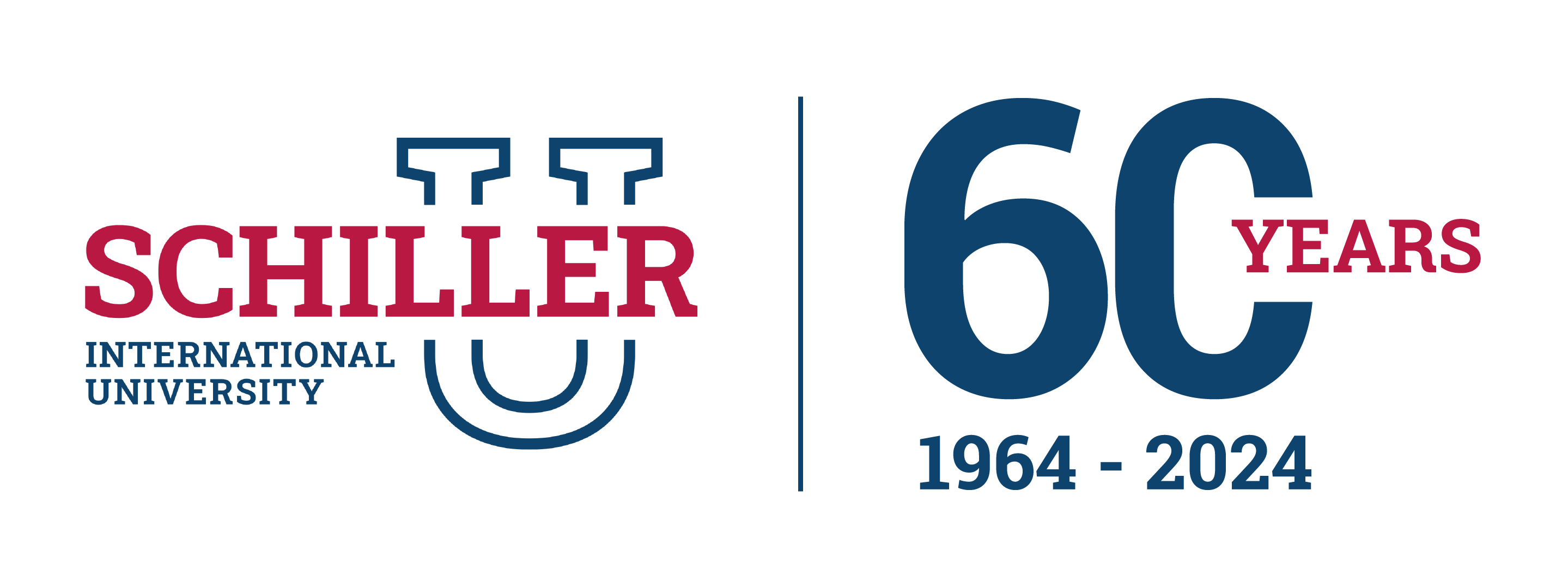Alumni Spotlight: Robert Pongracz

If there is a sport that transcends cultures and boundaries, and that connects with people of different backgrounds, it is football (Americans call it soccer!). Working in the football industry is the dream of many people, and it requires passion, creativity, and an unyielding commitment to excellence. Today, we're happy to introduce an individual who has made significant strides in this dynamic field. With a career spanning various roles, from strategic advisor to operations management, our distinguished alumnus has been at the forefront of pushing the envelope in sports administration. His journey is a testament to the power of dedication and vision in the pursuit of professional excellence in the world of football.
We sit down with Robert Pongracz, a distinguished alumni of Schiller International University, to reflect on his transformative journey from a Bachelor of Business Administration major with a minor in International Relations. Robert's Schiller experience began in 2003 at the Heidelberg campus, extending to the Madrid campus for a memorable six months.
Since then, Robert has had a dynamic career journey. He interned at Saatchi & Saatchi in Frankfurt, pursued Sports Law at ISDE in Madrid, and worked at LaLiga and UEFA. Currently, he holds a prominent position at IMG.
Robert's Schiller experience shaped his global perspective and forged lastingfriendships. He values the multicultural environment and credits Schiller for broadening his understanding of the world.
Reflecting on his journey, Robert advises current students to embrace the international setting and cherish every moment. In his work, he faces the challenge of meeting set goals while navigating the evolving landscape of the football industry.
Robert hopes for Schiller to create an alumni network, fostering connections among former students.
His journey exemplifies the transformative impact of a Schiller education, inspiring future generations of global leaders.
Can you tell us about your professional trajectory and what you
do today? Where are you based?
Since 2008, I have been employed by LaLiga, where I initially managed international relations and served as a personal advisor to the league's president. Additionally, I assumed the role of UEFA Venue Director in 2009 and continue in this capacity to date. In November 2013, I transitioned to become the Executive Vice President of the Romanian Football League, a position I held until October 2022. Subsequently, I accepted a position at IMG as Chief Operations Officer and Senior Director within the football events department in November 2022.
How did you discover Schiller?
I learned about Schiller through a friend who studied in Bruchsal.
Can you share some of your fondest memories from your time at Schiller International University?
Studying at Schiller was one of the highlights of my student years. I met many wonderful people and even found love. Looking back, I cherish these memories with great joy and continue to stay in touch with some of my classmates. There were countless memorable moments, too numerous to capture in a single account. Schiller provided me with the opportunity to forge friendships with individuals from diverse backgrounds, learn from them, exchange views, and grow together.
How would you describe the spirit and culture of Schiller during your years on campus?
The spirit and culture of Schiller were simply amazing. Students from all over the world came together to study and grow collectively. Schiller's unique environment facilitated interactions among individuals from various mentalities and cultures worldwide. This experience helped me develop a sense of togetherness and a multidimensional perspective, enriching my understanding beyond the discipline I studied.
Who do you remember the most from your Schiller years (classmates, faculty, or staff)?
I remember many classmates with whom I shared classes. Naming them all would require several pages. Among the faculty, I particularly recall a Portuguese professor in Heidelberg – Diogo Mesquita - who taught world economics. He was an excellent professor.
How has your education at Schiller played a role in your life since graduation?
My education at Schiller has had a significant impact, particularly in fostering an understanding of global relationships and globalization. In essence, it provided me with a broader comprehension of the world.
What do you consider to be the most valuable aspect of your Schiller experience?
The most valuable aspect of my Schiller experience is gaining an understanding of people from diverse backgrounds and corners of the world.
What advice would you give to current students to help them make the most of their Schiller experience?
My advice to current students is to enjoy every moment, make friends, explore the campuses worldwide, be open-minded, listen to different perspectives, and take full advantage of the international environment that Schiller offers.
What is the biggest challenge in your work?
The biggest challenge in my work is meeting the goals set at the beginning of the year by developing new business for my current employer.
The world of football is highly competitive and complex. What is the evolution of the industry, and how do you envision AI affecting it?
Football has undergone significant changes and is adapting to new societal challenges such as technological advancements and the influence of AI. Additionally, it seeks solutions to pressing issues like racism, inequality, climate change, political tensions, and the lack of effective leadership.
Football has transitioned from being solely a sport to being positioned as an entertainment product. Like any entertainment product, its success is gauged by its appeal to consumers. In this context, top-tier football is increasingly becoming a luxury commodity, distancing itself from its roots as a sport for the masses and becoming an event accessible primarily to the affluent.
Despite this trajectory, there are voices advocating that football will maintain its societal significance and resist complete commercialization. However, current trends do not necessarily support this optimistic viewpoint.

 Apply Now
Apply Now









